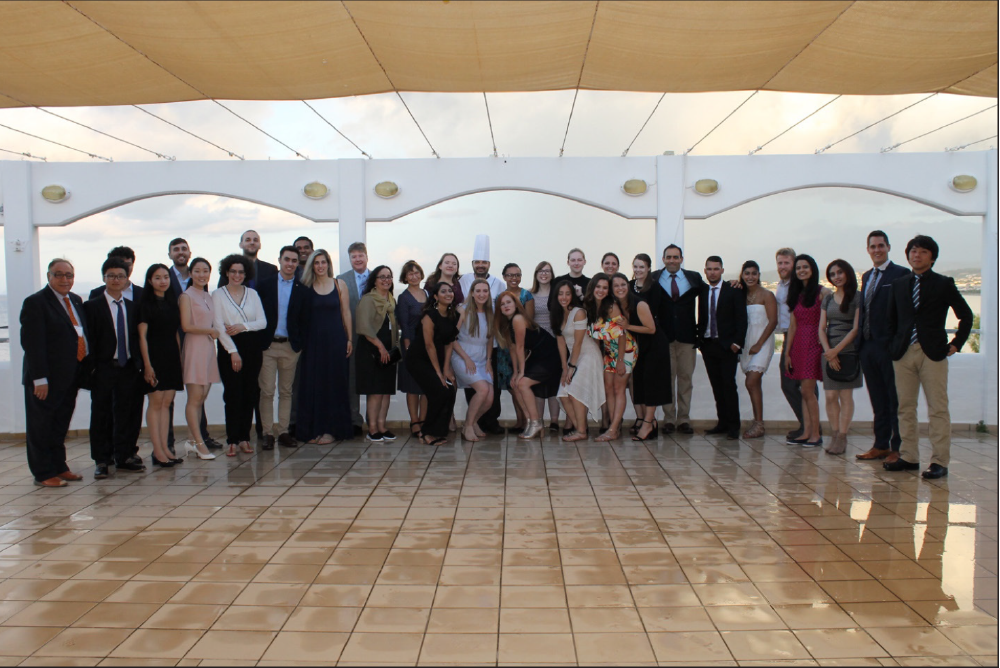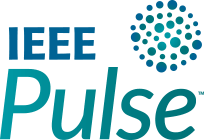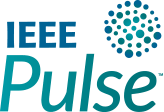I am honored and humbled to serve as the President of the world’s largest international society of biomedical engineers and scientists. Our 10,000+ IEEE Engineering in Medicine and Biology Society (EMBS) members reside in nearly 100 countries worldwide. EMBS provides its members with access to the people, practices, information, ideas, and opinions that are shaping one of the fastest-growing fields in science and engineering. As we continue to face unprecedented challenges during the COVID-19 pandemic, our members have contributed to life-saving scientific advances, published groundbreaking journal articles, and engaged in pioneering technical activities. Despite the significant financial and social challenges, EMBS activities continue to thrive.
Our mission is to foster and promote global biomedical engineering innovations, research, and education. We aim to improve the lives of all humanity, as well as to increase general awareness on the impact of biomedical engineering innovations in health care, the economy, and society. To achieve this, we have built a vibrant, global ecosystem of engineers, scientists, physicians, health care professionals, and industry leaders. In this ecosystem, we openly exchange ideas, disseminate our research, and share data and protocols.
New initiatives in this area include free public forums to share knowledge and stimulate discussion about pressing health care concerns, and to discuss how engineering innovations can be translated into practice to produce effective solutions to these grand challenges. In November 2020, we virtually hosted the IEEE EMBS Grand Challenges Forum on COVID-19 Health Care, Screening, Tracking, and Treatment with the participation of 29 globally well-respected plenary speakers and 770 participants. This virtual meeting was indeed one of the most comprehensive forums on COVID-19 research and has helped EMBS to build a platform that strengthens our collective capability to exchange ideas as well as share, access, and manage data, models, and latest reports regarding COVID-19 research. I am confident that this forum will also accelerate the rapid scientific innovation and reproducible research needed to find solutions in the global battle to contain the COVID-19 pandemic.
The second virtual public Grand Challenges Forum was a paradigm-shifting event on Data Science and Engineering in Health Care with more than 1770 participants, held February 10–13, 2021. The event featured 36 global scholars and leaders from the health care industry, research institutions, and academia in four symposiums highlighting medical imaging, precision medicine, digital health care, and the brain and neural system. Another 2021 public forum will be focused on Health Care Innovations and Entrepreneurship, showcasing 24 industry leaders in the areas of medical devices, biopharma, medical imaging, biotechnology, life sciences, and neurotechnology. Along with topical information, this forum will expose students and post-docs to the many career and networking opportunities available in the global health care market.
At the core of the society are 11 technical communities and a committee on biomedical engineering standards. These communities are responsible for the technical content of the conferences sponsored by the society including the annual IEEE EMBS conference and special topic conferences including the International Symposium on Medical Imaging (ISBI), the Neural Engineering (NE), the Biomedical Health Informatics (BHI) and the Micro and Nanotechnology in Medicine (MNM) Conferences. Each technical community works closely with the EMBS Award and Distinguished Lecturer Committees and coordinates publications and other member activities within their technical areas. EMBS is also the co-sponsor with other IEEE societies of two other technical communities.
Currently, our society sponsors 13 exceptional journals in addition to the IEEE Pulse magazine, covering the breadth of topics found within biomedical engineering and health care. Our premier journal is the IEEE Transactions on Biomedical Engineering (T-BME) and EMBS is proud of its history of publishing quality content since 1952, as well as the increasing number of paper submissions. I am also pleased to inform you that the IEEE Transactions on Biomedical and Health Informatics (JBHI) is now the leading journal in biomedical informatics with From the EMBS President Metin Akay 2 IEEE Pulse an annual submission of more than 2100 (~36% increase over 2019) and a current impact factor standing at 5.23 (~24% increase over 2019).
As the world moves to a more open-access environment, EMBS launched the IEEE Open Journal of the Engineering in Medicine and Biology (OJEMB). OJEMB offers a forum for scientists and engineers whose research is the engine that drives advances in biology and technology with tremendous impact on the field of medicine. To facilitate the exchange of information within this diverse scientific community, OJEMB accepts manuscripts in multiple formats, including the format typically used by journals in the Nature and Science portfolio, as well as the format used by IEEE journals. I highly encourage you to consider submitting your manuscript to OJEMB!
Our society also sponsors or co-sponsors seven outstanding summer schools including Biomedical Imaging (France), Signal Processing (Italy), BIO(BRAIN)-X (Crete), Medical Devices and Sensors (Hong Kong), Information Tech in Biomedicine (Slovakia), Neural Engineering (China), and Computer Modeling in Medicine (USA). These summer schools are one-week immersive experiences for undergraduate, graduate, and post-docs with the participation of 6-10 expert faculty from diverse backgrounds. The summer schools provide limited travel support for eligible students, and I highly encourage students and post-docs to apply and attend. All EMBS summer schools are an excellent learning, teaching, brainstorming, and networking opportunity for undergraduate and graduate students. Also, I believe it is extremely important for students to personally meet with leaders in the field, while enjoying a pleasant location and experiencing a new culture.
One of these summer schools, the BIO (BRAIN)-X, is sponsored by the United States National Science Foundation (NSF), co-sponsored by the IEEE EMBS, the IEEE Brain Initiative, the University of Houston, and the Tech University of Crete. Since 2001, more than 550 students have attended, and more than half of these participants represent gender and ethnic diversity in our community. Former participants currently hold faculty positions in respected universities and leadership roles in the health care industry and have been globally networked for 20 years. You are welcome to visit some of their responses to this opportunity at the following link: https://brain.ieee.org/uncategorized/biobrain-x-international-summer-school/.

Importantly, IEEE EMBS recognizes and values the role women scientists and engineers have played in our overall societal success since 1952. As President, I pledge to continue to promote female scientists and engineers by encouraging involvement in our conferences, publications, as well as technical and membership activities and committees. We will continue to actively recruit and invite a diverse membership to fulfill leadership roles in our society, and will provide opportunities and recognition for their contributions to our community.
I am confident that during my tenure, our society will play a key role in advancing engineering innovations in health care. We will continue to make meaningful differences in the lives of others and impact the careers of our students and members. Ultimately, we will increase the public awareness of the role of biomedical engineers and health care innovations in our global community. With your membership and participation, EMBS will achieve these goals and turn all the challenges we face into opportunities for our members, the biomedical engineering community, and the general public.


